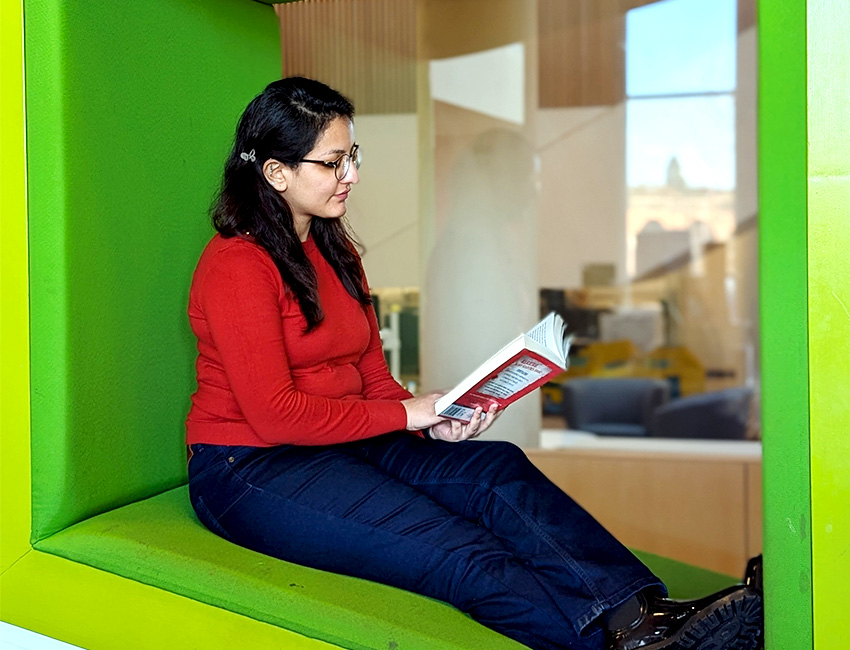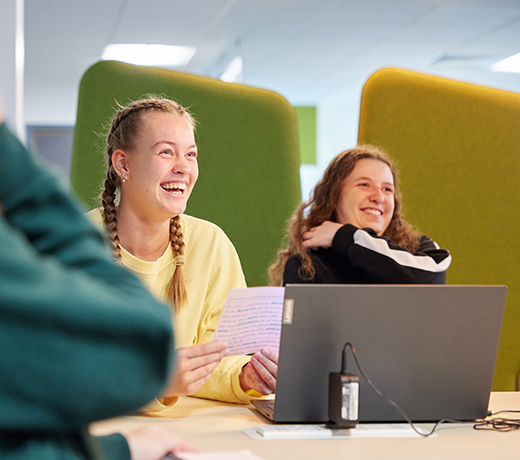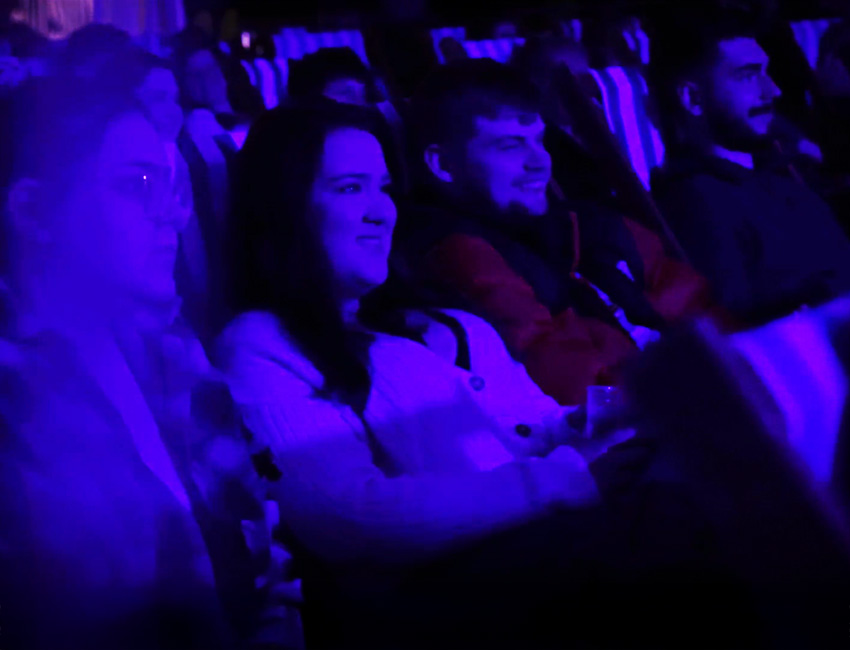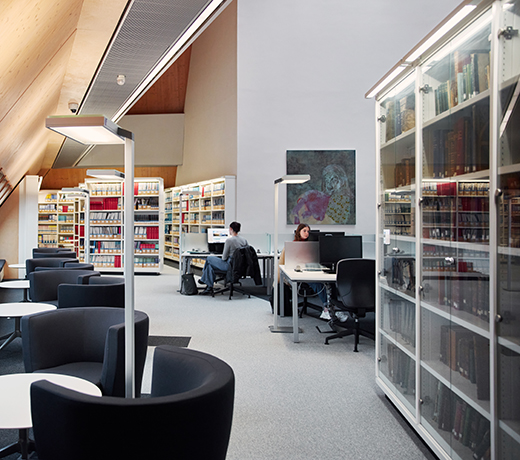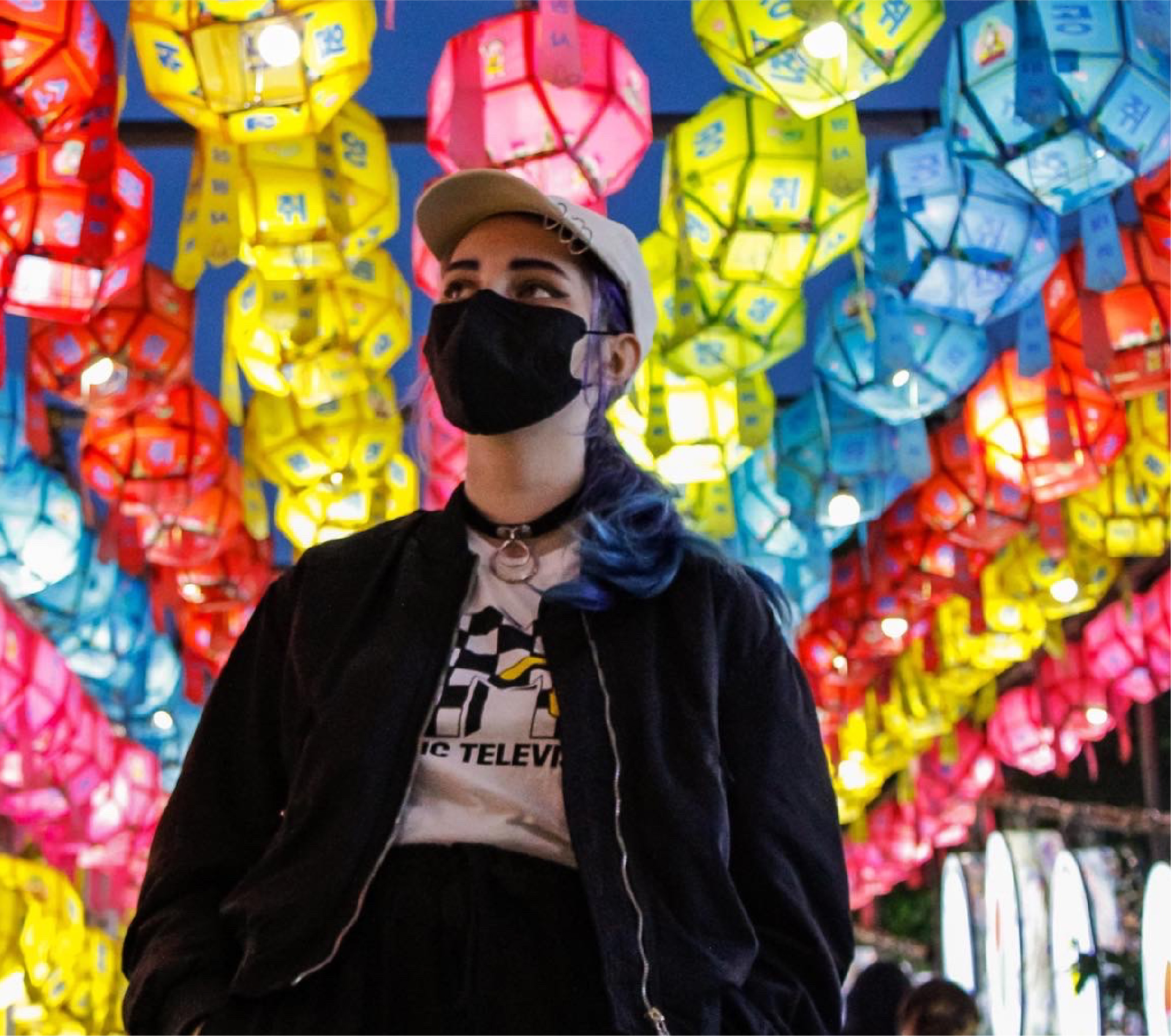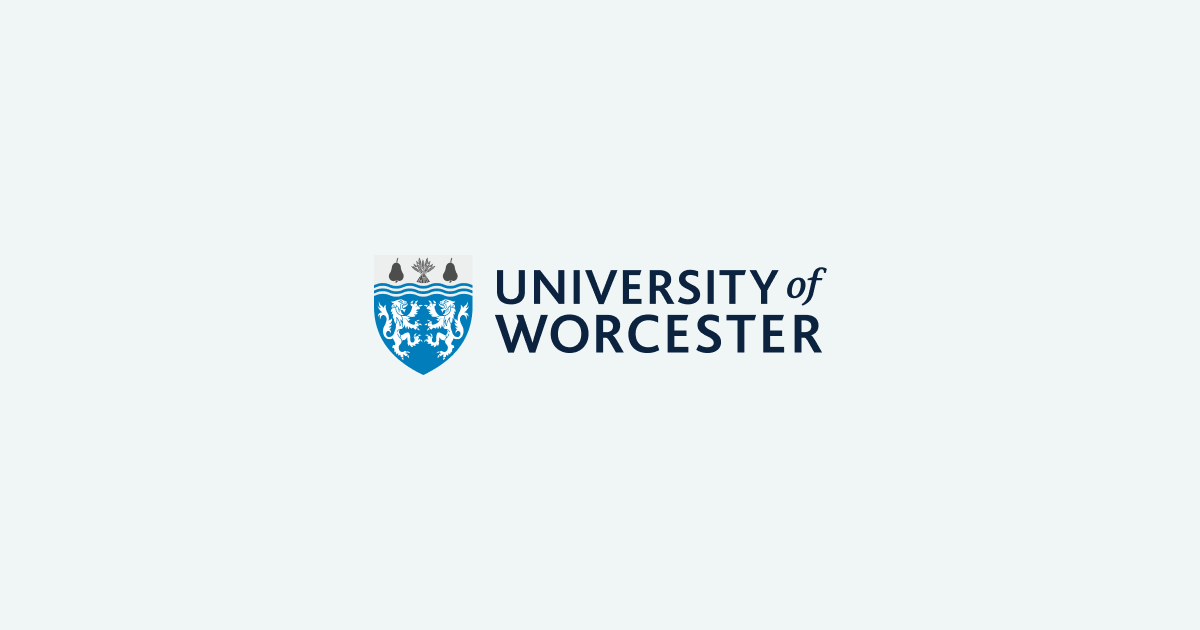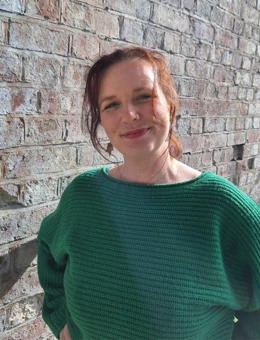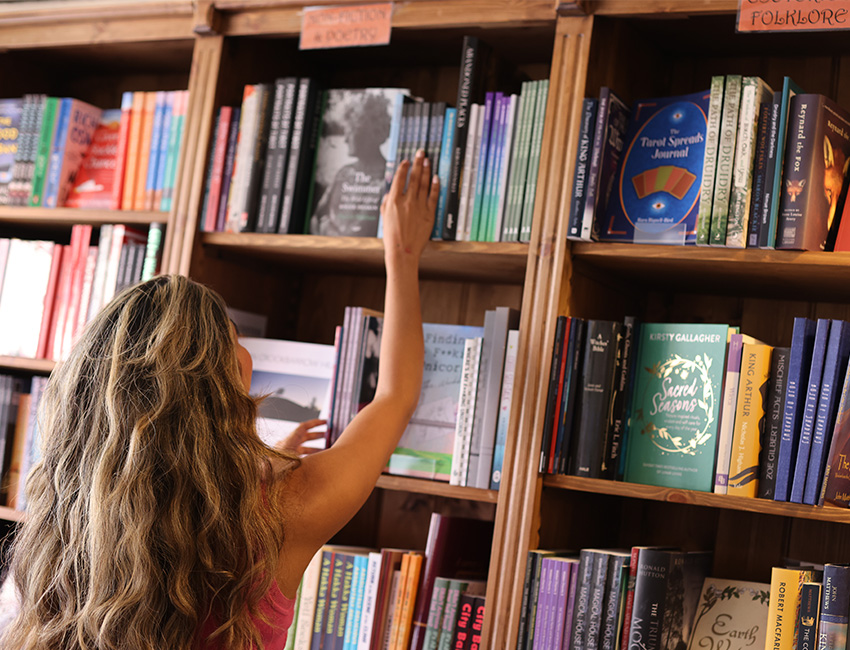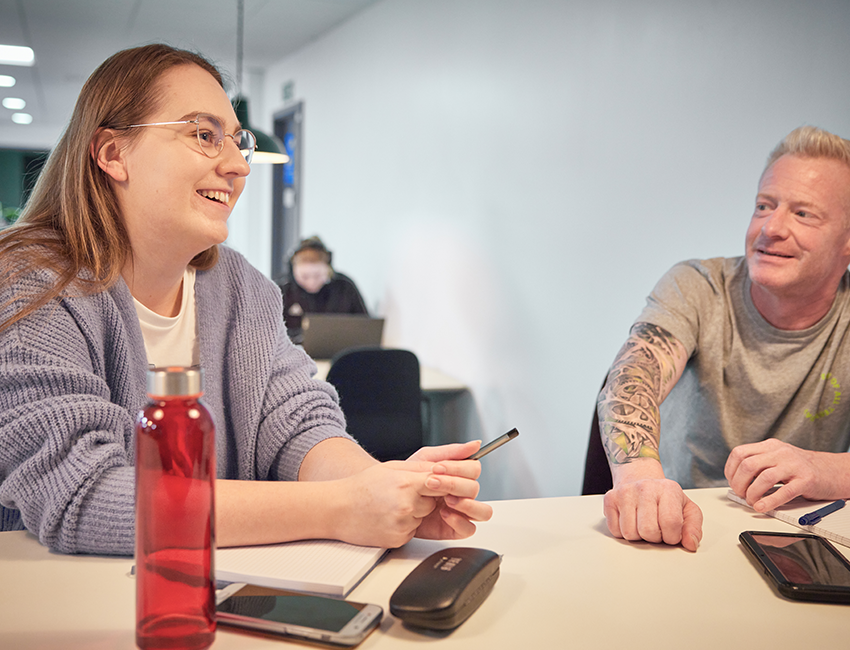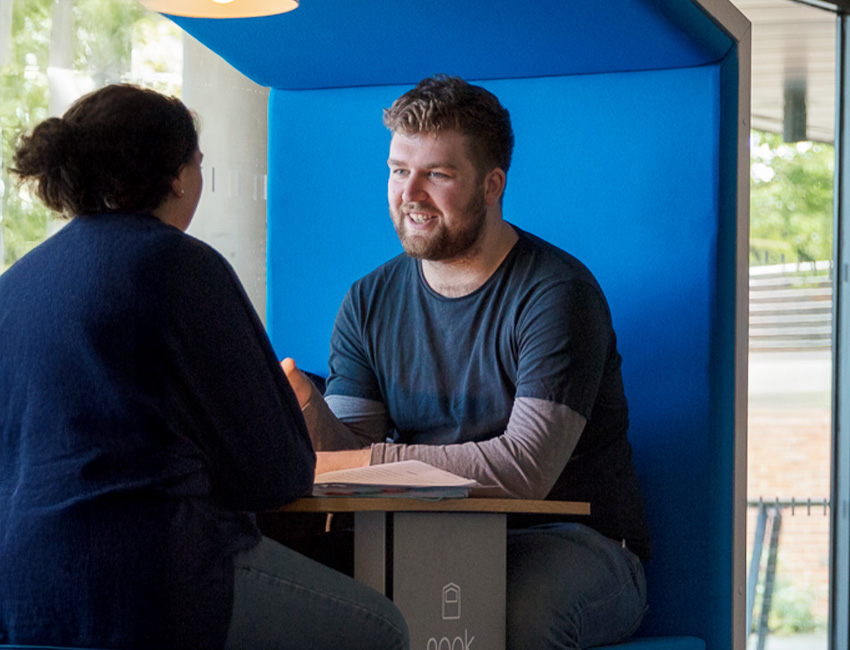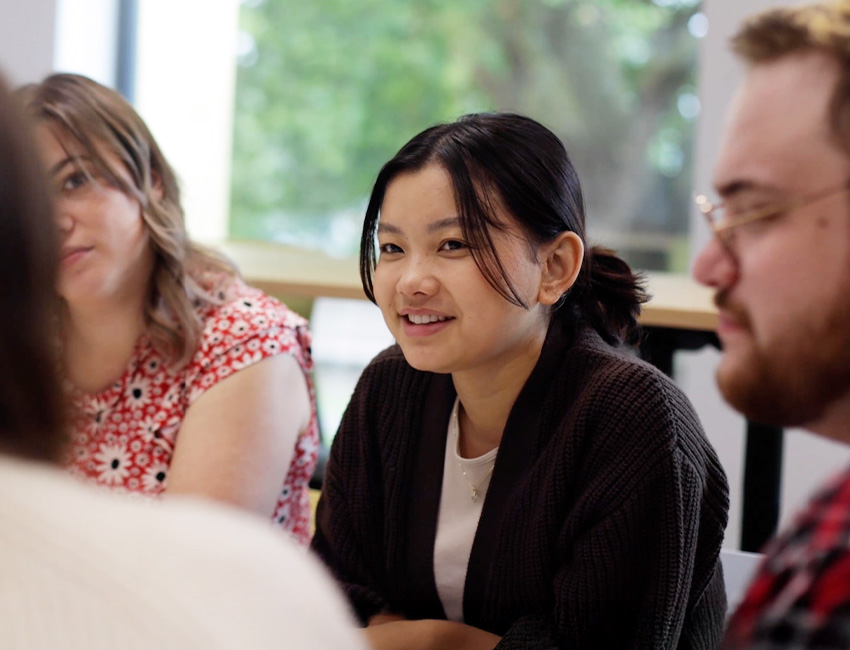At Worcester, you’ll develop your creative voice through small classes, personalised feedback, and real-world experience. You’ll work closely with peers and lecturers, respond to industry briefs, and have the opportunity to work with local organisations to showcase your storytelling skills.
Students feel free to express their opinions and beliefs
of students are in work and/or further study 15 months after graduating
University of the Year finalist
Recognised for our graduate success, we’re shortlisted for University of the Year in the Times Higher Education Awards 2025.
Overview
Explore the richness of literature and media in this joint honours degree. You’ll study poetry, fiction, drama and non-fiction from different time periods and cultures, discovering how styles and forms have evolved. Through our range of optional modules you’ll have the chance to focus on specific themes or subjects. You could examine key genres such as Gothic, Romantic and children’s literature, or focus on how themes like race, sexuality and gender equality are explored in both literature and media and film.
Our Media and Film Studies course introduces you to emerging industries, the latest technology and ongoing debates within the field, such as social media politics. You’ll investigate how media influences public opinion, reflects society, and uses style and genre to shape meaning. Outside the classroom, you’ll have the chance to learn through research trips, film screenings, workshops, showcases and guest talks from professionals in digital marketing, content creation and more.
Throughout your studies, you’ll build analytical, research and communication skills that employers value. You’ll become confident in presenting ideas academically and professionally, preparing you for careers in publishing, media, marketing, cultural heritage and beyond.
From classic texts to contemporary media, you’ll develop a critical eye for storytelling in all its forms.
Work experience
Worcester is rich in both its history and how it values the arts. Alongside your course you’ll be encouraged to take up volunteering with local organisations such as museums, theatres, The Hive library or opportunities to showcase your work with Severn Arts and Worcestershire Litfest and Fringe.
By engaging with Worcester's’ local organisations and arts festivals, you’ll gain work experience, build a portfolio of creative works and begin developing your network of professionals, who can continue to support you and offer guidance after graduating.
Course content
The mix of theoretical and practical based learning will help you develop your critical thinking skills and apply this to your own work as you develop your personal style and voice for conveying stories and concepts through written and visual media.
We regularly review our courses to reflect the latest research and developments in the subject area, as well as feedback from students, employers and the wider sector. As a result, modules may change to ensure the course remains current and relevant.
Optional modules will run if enough students choose to study them. It is not guaranteed that all modules will be offered every year.
Careers
By your final year of this course, you’ll have developed a variety of transferable skills such as organisation, communication, teamwork, leadership and critical thinking. Combined with your portfolio of work built up across your modules, you’ll be ready to progress into a variety of industries or postgraduate study.
With the focus on developing your written communication skills and deep understanding of media technologies, you’ll be well positioned to work towards careers in:
- Education
- Entertainment
- Marketing
- Publishing
- Journalism
- Public relations and local politics
Further study
English Literature provides a strong foundation to progress onto postgraduate courses in a range of disciplines. To further develop your knowledge and expand your Literature and Media degree into other subjects, Worcester offers a range of postgraduate and research-based courses.
You could progress onto any of our Humanities courses, which includes English and Media related courses or Education and Teaching Training courses.
Course highlights
Teaching and assessment
You’ll learn through a blend of interactive seminars, lectures, one-to-one tutorials and practical skills sessions. There are no exams – instead, our assessments are designed to prepare you for your future career. You’ll complete essays, research reports, blog posts and presentations, while developing your own creative projects to showcase in your portfolio.
Teaching and assessment contents
You will be taught through a combination of workshops, lectures, seminars, class trips, film screenings. Interactive workshops take a variety of formats and are intended to enable the application of learning through discussion and small group activities. Seminars enable the discussion and development of understanding of topics covered in lectures. All modules are supported by the use of the virtual learning environment and other learning technologies.
You will also have the opportunity to gain employability skills through work-based learning. The primary focus of this provision is the year 2 Work Project module where students gain valuable experience of work.
Meet our English Literature, Media and Film Studies lecturers
Entry requirements
UCAS tariff points required: 104
| Qualification | Grade |
|---|---|
| A-level | BCC |
| BTEC National Extended Diploma | DMM |
| T-level | M |
We do accept Access to HE Diplomas and other qualifications which may not exactly match the combinations above. Work out your estimated points with the UCAS tariff calculator.
Any questions?
If you have any questions about entry requirements, please call our Admissions Office on 01905 855111 or email admissions@worc.ac.uk.
Fees
Fees contents
UK and EU students
In 2026/27 the standard fee for full-time home and EU undergraduate students on BA/BSc/LLB degrees and FdA/FdSc degrees is £9,790 per year.
Tuition fees are reviewed annually and may increase each year for both new and continuing students.
For more details on course fees, please visit our course fees page.
International students
In 2026/27 the standard tuition fee for full-time international students enrolling on BA/BSc/LLB degrees and FdA/FdSc degrees is £17,200 per year.
Tuition fees are reviewed annually and may increase each year for both new and continuing students.
For more details on course fees, please visit our course fees page.
How to apply
How to apply contents
Applying through UCAS
UCAS is the central organisation through which applications are processed for full-time undergraduate courses in the UK.
Read our how to apply pages for more information on the application process, or if you’d like to apply for part-time study.
Contact
If you have any questions, please get in touch. We're here to help you every step of the way.
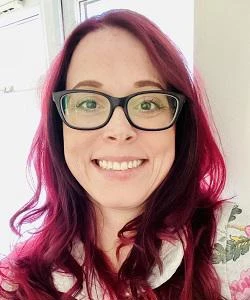
Katy Wareham Morris
Senior Lecturer in Media & Film Studies; Course Leader for Media & Culture; Head of Department for English, Media and Culture
k.wareham.morris@worc.ac.ukAdmissions Office
admissions@worc.ac.uk01905 855111More to explore
Open Days
Visiting us is the best way to get a feel for student life at the University of Worcester.

The City of Worcester
Worcester is a welcoming university city with great transport links and plenty of student parking.

Accommodation
Benefit from our accommodation guarantee. We have rooms on campus to suit every budget including en-suite options.

